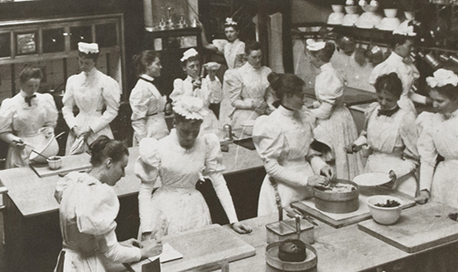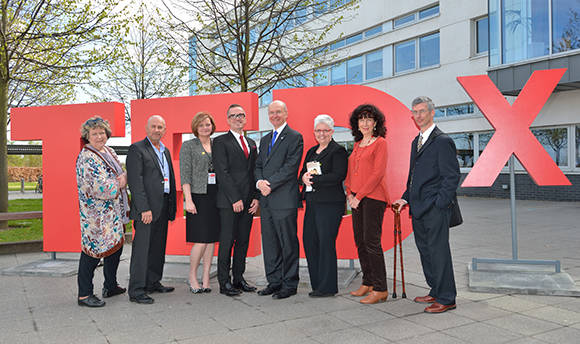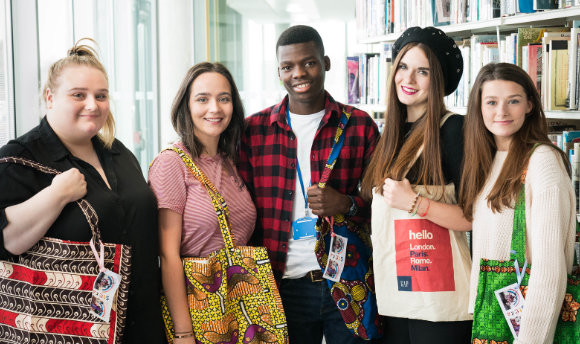Cooking Classes to Support the Student Transition to University Life
Since 2017, we have run a collaborative project with the homeless charity, Cyrenians, to deliver cooking classes for students transitioning to university. Nursing lecturer Caroline Gibson has worked with staff at the charity to run inclusive and fun cooking classes, which help to enhance student support, wellbeing, engagement, and retention of students in their first year of study.
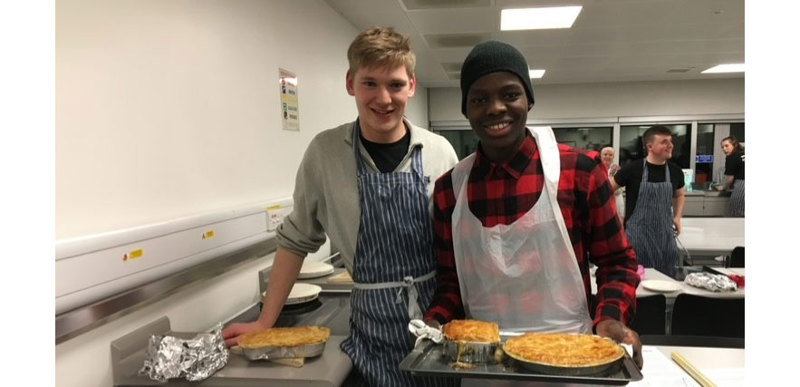
This extra-curricular activity offers participants the opportunity to plan, cook and share healthy meals together and to develop and enhance social connections. The sessions, which involve volunteer peer facilitators, maximise opportunities for students to engage with each other in preparing, cooking, and sharing food.
The project aligns with QMU’s commitment to sustainability by using ingredients sourced from Fareshare, a surplus food hub located within Cyrenians, which connects local community interventions to good quality food that would otherwise have been sent to landfill.
The volunteer team also signposts students to other areas of the QMU food chain, including the QMU Food Pantry, and they also incorporate a visit to the QMU allotment to source produce. And, in order to build community and reduce isolation, participants in the final session are encouraged to invite a friend to celebrate and eat with the group.
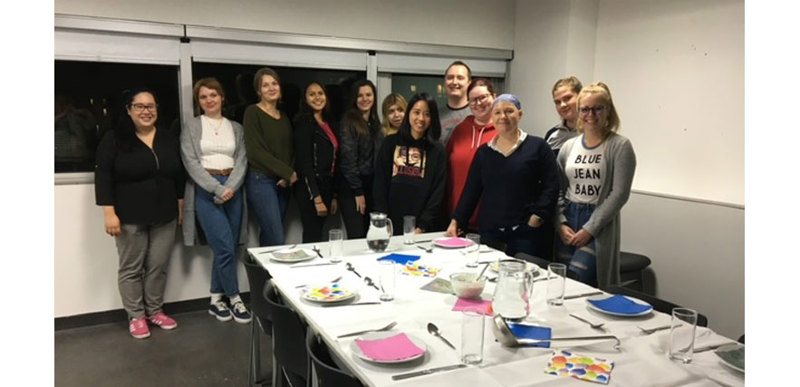
Commenting at the start of the project, Caroline Gibson explained: “Transition to university is the first time that some young people have had to source, purchase, and prepare their own food. Some studies assert that young adults may lack the confidence, knowledge, skills, and personal resources needed to prepare healthy foods, especially if culinary skills have not been included in school.
“The cost-of-living crisis has contributed to a rise in student food insecurity, and over the period of the project there has also been a rise in the number of students from the most deprived backgrounds attending university in Scotland. In 2017/18, 15.6% of entrants were from the most deprived areas and the Scottish Government’s target for the sector is for 20% by 2030. Students from disadvantaged backgrounds face significant financial challenges around living costs. There also appears to be a particular vulnerability of food insecurity amongst school leavers, those living in student residences or accommodation out with the parental home and at examination periods. This has potential to influence health, wellbeing, and academic performance.”
The project has been a highly worthwhile link in QMU’s ‘food chain of support’, as it helps to embed wellness and inclusion into university life and enhances the potential for increased student retention and success.
